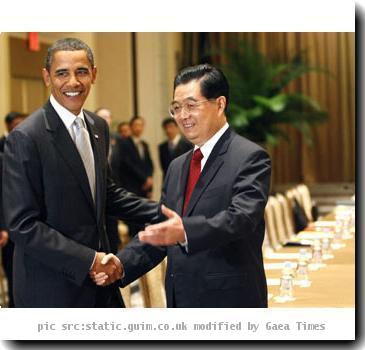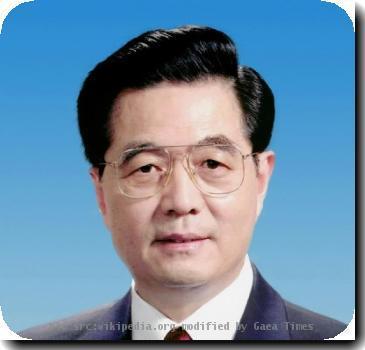China to Dalai Lama’s Tibetan envoys: No concessions on issues of national sovereignty
By Gillian Wong, APMonday, February 1, 2010
China stresses sovereignty in talks on Tibet
BEIJING — A senior Chinese official said Monday he told the Dalai Lama’s envoys that Beijing will not hold any sort of debate about its sovereignty over Tibet, indicating the first of such talks on the restive region in 15 months did not produce any breakthroughs.
Du Qinglin, head of a government department in charge of the talks, told the Tibetan spiritual leader’s emissaries that China’s national interest was inviolable, and “there can be no room for discussion, no room for compromise” on territorial issues, the official Xinhua News Agency said.
At the last talks in 2008, the Dalai Lama’s envoys proposed a way for Tibetans to achieve more autonomy under the Chinese constitution — a key demand of the minority community. But China apparently rejected the plan, saying it would not allow Tibet the kind of latitude granted to the territories of Hong Kong and Macau. Chinese officials insisted they would address only the return of the Dalai Lama, who fled to exile in 1959.
The Tibetan government-in-exile in Dharmsala, India, said last week it hoped the two sides would be able to revisit the proposal for greater autonomy. Du’s remarks, carried on the Web site of the United Front Department of the Communist Party, show Beijing did not waver from its earlier hard-line stance.
“The only thing there is to discuss, on the premise that you give up separatist words and actions, is the future of the Dalai Lama and the people around him,” Du said. “We hope the Dalai Lama will face reality squarely and return to the patriotic stance.”
Beijing demonizes the 1989 Nobel Peace Prize laureate and says he seeks to destroy China’s sovereignty by pushing independence for Tibet. The Dalai Lama has maintained for decades he wants some form of autonomy that would allow Tibetans to freely practice their culture, language and religion under China’s rule, not independence.
Du said the exiles’ calls for a “greater Tibet” incorporating all Tibetan-inhabited areas, a region occupying about one-quarter of China’s total territory, and a higher level of autonomy violated the Chinese constitution. He said only if the Dalai Lama abandoned such requests could there be a basis for contact.
But the Dalai Lama has always sought an arrangement “where Tibet can enjoy genuine autonomy within the framework of the Chinese constitution,” said Thubten Samphel, the spokesman of the government in exile in Dharmsala.
“We’ve made that very, very clear to the Chinese side” in earlier talks, he added.
The Dalai Lama’s envoys, Lodi Gyari and Kelsang Gyaltsen, returned to India early Monday after meeting officials in Beijing over the weekend, according to Chhime R. Chhoekyapa, the Dalai Lama’s secretary.
Details about the discussions from the Tibetan delegation were not immediately available. After arriving in the Indian capital, the two envoys were expected to go to the northern Indian hill town of Dharmsala to brief the Tibetan prime minister-in-exile, Samdhong Rinpoche, on the talks, he said.
Tibetan areas have been tense in recent years, with the minority community complaining about restrictions on Buddhism, government propaganda campaigns against their revered Dalai Lama, and an influx of Chinese migrants that leave the Tibetans feeling marginalized. Those feelings boiled over in deadly anti-Chinese riots in 2008 that shocked Beijing’s leaders.
China’s decision to hold the talks could have been prompted by signals from U.S. officials in recent weeks that Obama might soon meet the exiled Tibetan leader — something Chinese officials are keen to avoid before President Hu Jintao travels to Washington, possibly in April. The new talks were welcomed by the United States, Britain and Canada.
Associated Press writer Muneeza Naqvi contributed to this report from New Delhi.
Tags: Asia, Beijing, China, East Asia, Greater China, Hu Jintao, India, North America, South Asia, Tibet, United States

